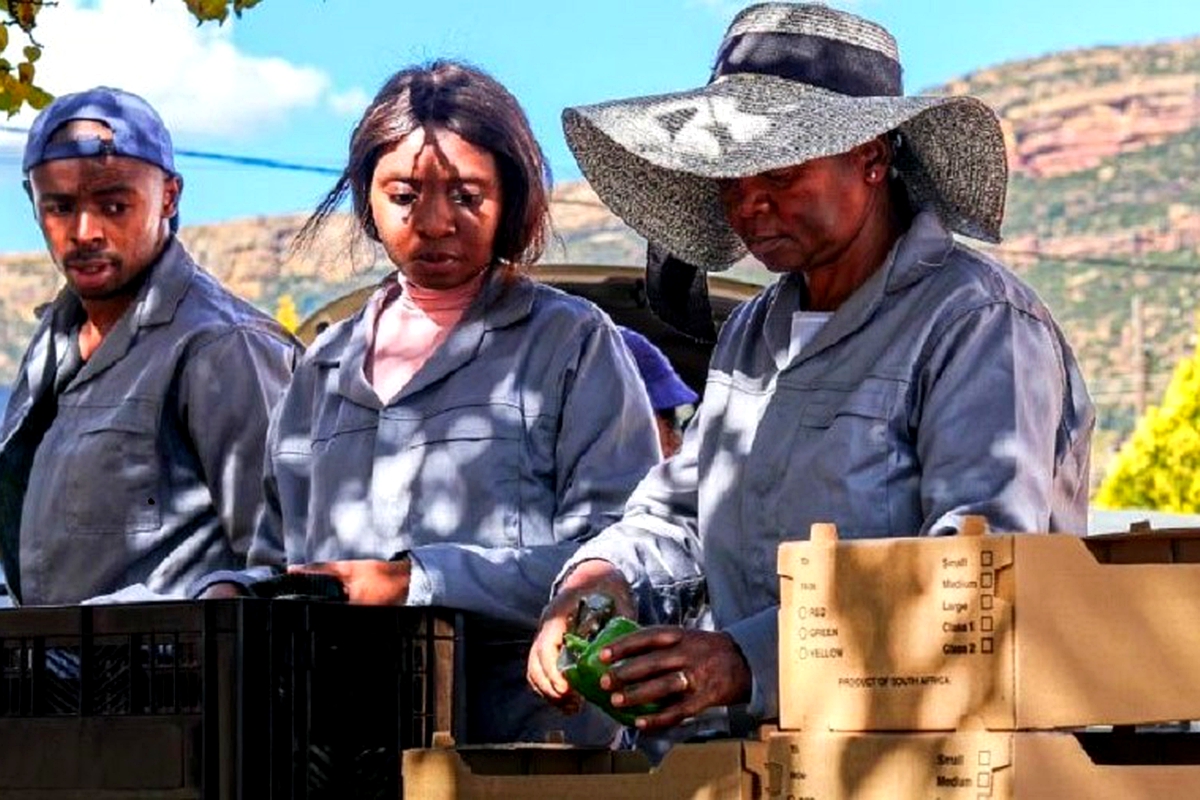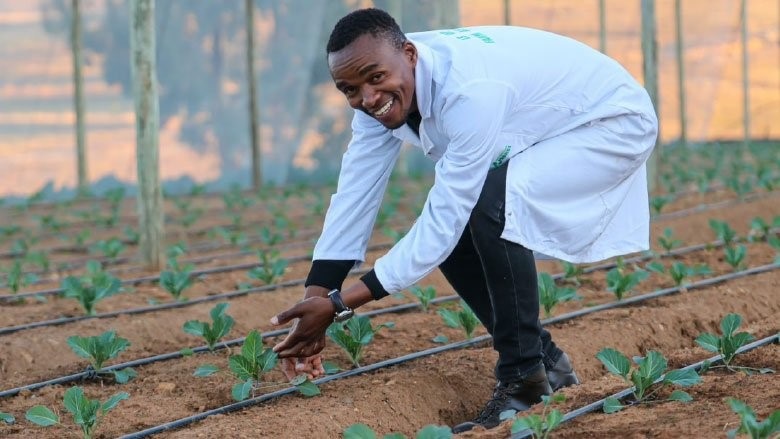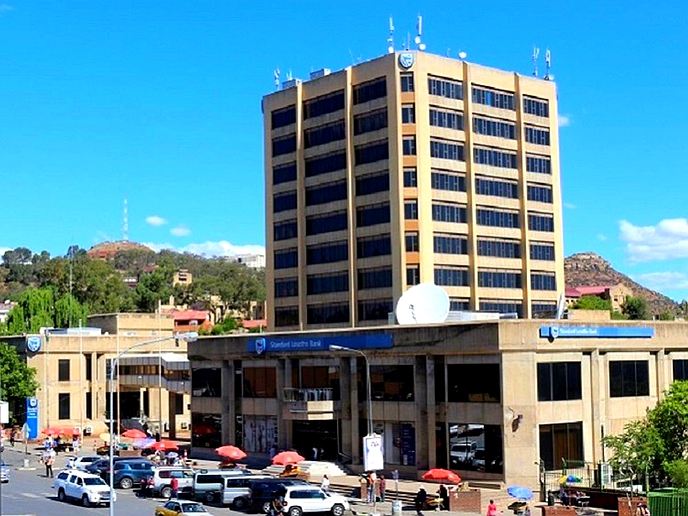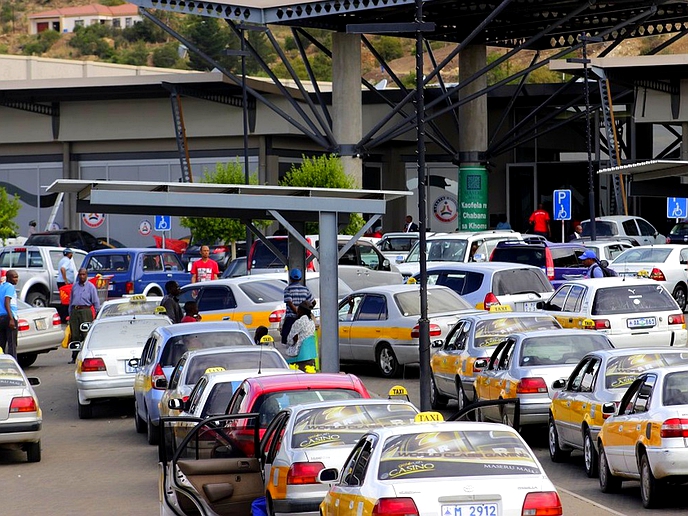FARMING has long been a passion for Moses Monyamane. Before retiring from civil service in 2019, he would spend his evenings and weekends tending the small vegetable garden he started in his yard.
business
Oct. 19, 2022
OWN CORRESPONDENT
4 min read
Transforming Lesotho’s farmers into entrepreneurs

'Mabokang Monyamane tends to her green pepper produce with her son and daughter-in-law
Story highlights
He loved gardening so much that his wife, ’Mabokang, decided to join him to nurture the flowering trees and gather seedlings to sell to her colleagues.
But they were not interested in seedlings; they were more interested in buying the lettuce and green peppers her husband grew.
It was then that she saw the garden as much more than a hobby. She saw a business opportunity.
With the support of her husband, her two sons, and her daughter-in-law, ’Mabokang applied for a matching grant from the Smallholder Agriculture Development Project (SADP) II, supported by the World Bank.
The grant, which requires smallholder farmers to make a contribution of the same amount, provides the tools they need to adopt climate-smart agriculture technologies to increase the size, diversity, and resilience of their crops, and to take advantage of new market opportunities.
Using the grant to expand their hobby into a family business also gave the Moyamanes an opportunity to help Basotho in the town of Morija, where they live and farm.
“We wanted to go the extra mile because there are kids all over who don’t work,” said ’Mabokang, who has two full-time employees and one part-time employee to help her as well as her family.
“We wanted to create jobs for the villagers.”
Agriculture is an important source of employment and subsistence in Lesotho.
With the majority of Basotho—more than 70%— dependent on agriculture for both food and income, the sector holds the most potential for increasing food security, reducing rural poverty, and generating on- and off-farm jobs.
However, climate change, extreme weather, and global economic shocks pose a challenge to the development of the agriculture sector, said Bobojon Yatimov, the World Bank’s Senior Agricultural Specialist for Lesotho.
“It is imperative to support farmers who rely on the food they grow for their families and for income, especially given that climate shocks are more frequent than ever before,” said Yatimov, who managed the SADP project until June 2022.
"Prolonged and severe droughts of 2016 and 2019, and the floods of the 2021 and 2022 are clear manifestations of these changing weather patterns, which is adversely affecting the agriculture sector.”
With the government focusing on strengthening food security, Phase 1 of the project trained farmers in good agricultural practices, including climate-smart drip irrigation. Such training, together with grant financing support, has increased their use of the modern technologies that have improved production, market access, and livelihoods. Since the start of the project in 2012:
To date, the project has provided more than 878 grants and reached a total of 78 500 beneficiaries through the competitive grant programme and other capacity-building activities to improve agriculture productivity, income generation, and job creation.
Bokang Petje, the owner and managing director of Happy C&J Village Farm in Mahloenyeng, Maseru is one of Lesotho’s young farmers.
With a grant, he was able to add a borehole and drip irrigation to his farm as a way of directly watering individual plants rather than casting spray over a large area. The process not only conserves soil nutrients but also minimises or prevents waste.

Bokang Petje is optimistic about agribusiness in Lesotho
Enjoy our daily newsletter from today
Access exclusive newsletters, along with previews of new media releases.
Along with the shade netting provided by SADP to protect his crops from frost, Petje was also able to invest in the plastic tunneling necessary to protect his lettuce, cabbage, tomato, and potato crops from hail.
With his expanded farm and the ability to grow crops throughout the year despite the increases in hailstorms and chilly weather that have come with climate changes, he is now able to sell his vegetables and fruit in local grocery stores, such as Pick ‘n Pay.
He believes in sharing his knowledge and wealth - he employs four permanent staff and supports other young farmers.
“We even give some training, consultations, and assistance to smallholder farmers. I’m sharing my expertise, and what I’ve learned since I started in 2015. I’ve gone through all those things, so I’m able to assist others to build their skills,” he said.
The project has contributed to the development of the capacity of farmers, including an emerging new generation. It has also helped agribusiness, to improve commercialisation: Surveys show that, of those who received grants, more than 190 farmers are projected to be commercially viable, with strong potential for growth into larger businesses.
In just a few short years, the Monyamane family has expanded the Monyamane Veg Production Farm enough to open an accompanying health food store, which offers to juice their vegetables into potent vitamin drinks.
“Our food, your medicine,” the store sign boasts.
“This,” Monyamane said, gesturing toward his crops. “This is life.” – World Bank News
Tailored for you






